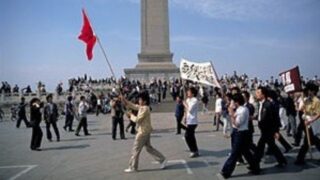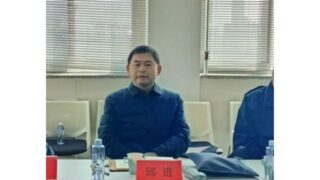Xi, like Putin, believes that the end of Communism in Eastern Europe was a tragedy, still causing him an almost physical pain. It is a key that explains many of his policies.
by Massimo Introvigne


On June 30, 2023, “Qiushi,” the theoretical journal of the Chinese Communist Party, published an article by Xi Jinping, titled “Strive to Grow into a Pillar of Talent Who Is Loyal and Reliable to the Party and the People and Worthy of the Heavy Responsibility of the Times.” Although published now, the article is derived from Xi’s speech of March 1, 2022, at the opening ceremony of the training class for young and middle-aged cadres of the Central Party School (National School of Administration) in the spring semester of 2022.
While most of the goals he indicates to CCP’s cadres are predictable platitudes about being good and honest Chinese citizens and obey the Party unconditionally, the first part of the article deserves special attention. It expresses in a very clear way an essential point of Xi’s thought: his and the CCP’s mission is to avoid that the Chinese socialist regime may end in the same way as the Soviet Union did.
“A large number of facts Xi writes, show that if a political party loses its ideals and beliefs, it will lose its spiritual ties, become a mere mob, and disperse when encountering storms. Party members and cadres who lose their ideals and beliefs will lose their political soul, and will be defeated when they will encounters tests. The most important thing for young cadres to succeed is, as Comrade Deng Xiaoping once said, to maintain ‘the heroic spirit that adheres to the direction of revolutionary struggle.’ This means to succeed in adhering to the belief in Marxism, striving for the ideals of Communism and socialism with Chinese characteristics. We need a generation that strives for common ideals. If the people we cultivate do not believe in Marxism and Communism, and do not hold up the banner of socialism with Chinese characteristics, tragedies will occur like the Eastern European upheavals, the collapse of the Soviet Communist Party, and the disintegration of the Soviet Union, which are too painful to look back upon.”
There are several points to be noted here. The first is that Xi Jinping, like Vladimir Putin, regards the popular revolts against Communism in Eastern Europe and the collapse of the Soviet Communist Party and the Soviet Union as “tragedies… which are too painful to look back upon.” What many in the free world regard as a victory for freedom and democracy is considered by Xi Jinping as a disaster whose sole thought gives him almost physical pain.
It is not about history only. Xi’s mandate is to avoid that what happened in the Soviet Union and Eastern Europe would repeat itself in China. The orthodoxy taught in the CCP Party school theory is that the Soviet Union and the satellite states fell not because they were too rigidly Marxist, but because they were no longer Marxist enough; not because they were too oppressive but because they had left too much liberty to civil society (including religion).


Hence the twofold recipe for China to avoid following the fate of the Soviet Union. First, cultivate and maintain in the new generation of Party cadres the faith in Marxism and Communism. Once again, a quasi-religious language mentioning “ideals,” “faith,” and “belief” is mobilized, but the faith Xi Jinping promotes is in the secular religion of Marxism.
Second, increase control to avoid that the civil society’s demand for freedom may raise what for the CCP is its ugly head in China. Elsewhere in the article Xi explains that one can believe that everything is under control in China, but this is not true for the Internet. It is Xi’s obsession in the last few years. The CCP may place a surveillance camera equipped with artificial intelligence in every corner of China but may not cancel dissident posts on social media until they have already been read and shared by thousands if not millions. Chinese are so addicted to social media that simply eliminating them is unthinkable. New mechanisms of control are introduced almost weekly, and just as regularly netizens invent something new to circumvent them.
If one looks for a key to explain Xi’s repression of any independent movement in civil society, including in the religious field, and his obsessive insistence on Marx and Marxism, it can be found here. Xi belongs to a generation of CCP leaders who saw with their own eyes the unthinkable, i.e., the fall of the Soviet Union, the Berlin Wall, and Eastern European Communism. They exorcise their pain for what for them was a tragedy by increasing repression and Marxist propaganda. In fact, they believe they are the only way to remain in power and preserve the CCP from the tragedy that hit the Soviet and Eastern European Communist Parties.









